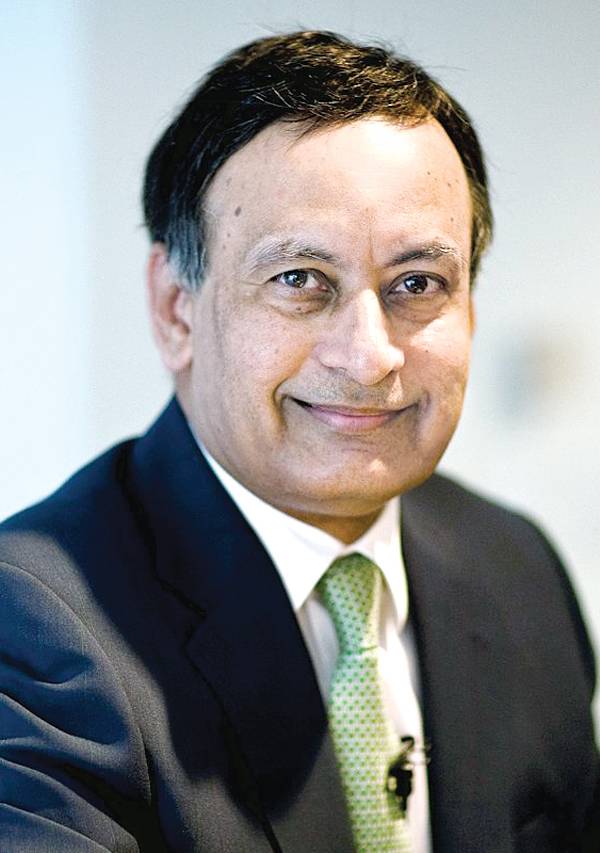ISLAMABAD - The Supreme Court yesterday moved to resume the Memogate case as the Chief Justice of Pakistan said they will summon Husain Haqqani to face the charges against him.
This development came as a three-judge bench headed by CJP Mian Saqib Nisar heard the petitions for granting right of vote to overseas Pakistanis in the upcoming general elections 2018.
The National Database Registration Authority (Nadra) informed the court that software enabling the overseas Pakistanis to cast their votes would be ready by April.
The bench granted 10 weeks time to Nadra for preparing software so that the overseas Pakistanis could also cast votes in the elections.
However, Justice Saqib questioned whether people like Husain Haqqani, former Pakistani ambassador to Washington, who claims to be a Pakistani but have stakes somewhere else, should be given the right of vote.
“Haqqani left his case. Why should we not issue him a notice to appear before the court so that he could face allegations in the Memogate scandal?” remarked the chief justice, and sought his file from the registrar office.
The Memogate controversy revolves around a memorandum allegedly drafted by Ambassador Haqqani at the behest of President of Pakistan Asif Ali Zardari and addressed to US Admiral Mike Mullen.
It ostensibly sought help of the Obama administration in the wake of the Osama bin Laden raid to avert a military takeover of the civilian government in Pakistan, as well as assisting in a civilian takeover of the government and military apparatus.
Justice Umar Atta Bandial said, “Many Pakistanis reside abroad but still have hearts in Pakistan, however many of them have their stakes somewhere else which require their commitment [to that country].” He asked the Nadra chairman and ECP secretary to bear this aspect in mind.
Election Commission of Pakistan (ECP) Secretary Babar Fateh Yoqoob told the court that this question [about the intending overseas voters’ commitment to Pakistan] would be incorporated in the software.
“We are bound to make it sure that the process of giving voting right to the overseas Pakistan is not compromised so that no one can raise finger at the ECP,” he added.
The chief justice noted that Nadra must also keep in mind the hacking issue and make sure they develop an unbreakable security system.
Justice Saqib inquired from Nadra chairman when he would be giving the good news to the overseas Pakistanis about right of vote. He said there is a law regarding voting right to overseas Pakistanis but Nadra has to make it operational.
Nadra Chairman Usman Yousaf Mobin said that the Election Commission has called a meeting of all the stakeholders in April. He said they have taken drastic measures and work on software has also been started.
But he requested the court to grant three more months for preparing the software, saying that there were issues of data security and making the system user-friendly that require time. However, the chief justice said they would give six weeks for it.
On court’s asking, ECP secretary said that the next by-polls would be held in the first week of March. Upon that Nadra chairman said they would then conduct mock exercise as the software would be prepared probably by April.
The chief justice finally gave Nadra 10 weeks for the preparation of the software and mock trial.
Justice Saqib said that IT experts from abroad or within Pakistan can also provide assistance to Nadra if required. He said some overseas Pakistanis had phoned him and said they were even ready to provide funds for it.
ECP secretary said the government was ready to pay all the costs.
The chief justice asked Pakistan Tehreek-e-Insaf MNA Arif Alvi where his party was when the parliament passed Election Act, 2017. He said PTI has a considerable chunk of supporters overseas therefore it should have made efforts for ensuring their right to vote.
Alvi informed that in 2011 he had raised issue of right of votes for the overseas Pakistanis in the sub-committee of National Assembly. And, it was decided that voting right would be given to expatriates, he added.
More on Memogate
The memo was delivered to Mullen in May 2011 through then US National Security Adviser James L Jones by Pakistani-American businessman Mansoor Ijaz, allegedly on Haqqani’s asking.
Mansoor, who claimed to be a long-time friend of Haqqani, wrote a Financial Times article in October 2011 bringing initial public attention to the affair.
The memo, which at first was questioned to even exist, was published in November, leading to the resignation of Ambassador Haqqani and start of an investigation on the orders of the Supreme Court.
In April 2012 a petition was submitted in the Supreme Court to arrest Haqqani through Interpol for his refusal to return to Pakistan from the US.
On June 2012 the Supreme Court commission released its findings and found that after testimony by all parties and verifying the forensic results of Mansoor Ijaz's BlackBerry conversations with Haqqani it was "incontrovertibly established" that Husain Haqqani had written the memo and was being called back to Pakistan to face likely charges of treason. But Haqqani did not return and the case was thrown into cold storage.
Haqqani in hot water
TERENCE J SIGAMONY






